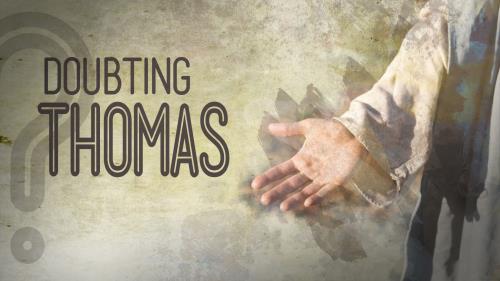-
Science And Christianity Series
Contributed by Chris Appleby on Nov 28, 2017 (message contributor)
Summary: Is Science in conflict with the claims of Christianity? How can someone hold to the truth of Science and the truth of Christianity at the same time?
This is a series based on and heavily dependent on Timothy Keller’s Best Seller "The Reason For God" for which I’m deeply grateful. It uses much of his argument though with various additions by myself or the other preachers of the series.
How do you answer your friends or colleagues when they ask you why you believe? What do you say when they throw up one of the many excuses for not believing. If you’ve been here for the last few weeks you may have noticed that we’ve been trying to answer those questions in this sermon series on doubt to belief. What we’ve been doing is to answer the questions people ask as though they were in the congregation. We want to equip you to answer them yourself when someone asks you. We might also be helping you to answer questions that you yourself ask from time to time.
Well, if someone doesn’t suggest that all religions are the same; or that suffering in the world disproves God; if they don’t complain that the injustices inflicted by the Church are enough to put them off God, you can be fairly sure that they will think that science has disproved Christianity. Richard Dawkins claims that evolutionary science has shown that God’s role in creation is just a myth; that the advances of science have removed the need for God. He and his colleagues would argue that science shows that miracles are impossible. Everything is governed by cause and effect, these people would say. If it can’t be measured it can’t be real.
But that’s a circular argument isn’t it? Science works entirely on what can be measured. We can’t measure the supernatural, therefore it can’t exist. But what does that prove? Only that science is limited to a certain part of reality. Beyond that it becomes a statement of faith on the part of scientist and Christian alike. We’d want to argue from the opposite point of view: if there is a God, who created the world out of nothing, then there’s nothing illogical about the possibility of miracles.
The Battle of Science vs Christianity
People like Dawkins seem to want to revive the battles of the 19th century, of Christianity vs evolution. Dawkins suggests it’s impossible to be an intelligent scientist and believe in God. Well I can think of some pretty intelligent scientists who do believe in God. And of those who don’t believe I imagine most would have come to the point of disbelief long before they became scientists.
The Moral Compass
One of the failings of natural science is in its efforts to explain the immeasurable parts of human experience: love, generosity, conscience, the innate moral compass. I heard Richard Dawkins, on TV or radio, trying to explain that love has to do with the imperative of the survival of the species. It’s just evolution making our hormones do their thing in order to perpetuate life. What he didn’t explain was how a person can fall in love with someone who’s physically unattractive or disabled in some way. If it’s just the imperative of evolution why would someone be attracted to another person who’s, for example, unable to bear children. That’d go against the whole survival of the species principle wouldn’t it?
Similarly, Dawkins seems to have a problem with understanding the idea of sacrificial love, especially love that would give up life for the sake of another. You may have seen him on the ABC’s Q&A program in March. There he described the idea of Jesus giving up his life for the sins of the world as a horrible, depraved notion. And I guess he’s quite consistent in coming to that conclusion because in his worldview, the notion of self-sacrifice goes against the whole principle of natural science. Yet it’s what many people do, don’t they? They give up their own rights for the sake of others.
Similarly there are certain moral beliefs that almost all of us hold that just can’t be explained by some inbuilt physical mechanism. For example, we see genocide as morally wrong even if it might be a way of removing an inefficient and weaker racial group from the gene pool. We hate injustice. We cheer when a cheat gets caught. These sorts of belief aren’t the product of our cultural conditioning. They’re innate, built-in.
Still there are some who would argue that morality arises from a social contract that we all enter into as part of a society. We have certain agreed behaviour standards that ensure the society works well. We’ve worked out that it’s in our own best interest to follow the rules. ‘Do unto others as you would have them do to you’ will lead in the end to the best outcome for you. So we don’t steal because the concept of ownership of property is central to our economic well-being. We pay our taxes because if we all pay our taxes they’ll be minimised and the government will be able to do their job well and so we’ll all be happier.

 Sermon Central
Sermon Central



